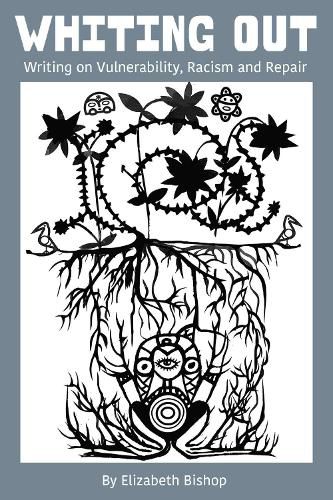Readings Newsletter
Become a Readings Member to make your shopping experience even easier.
Sign in or sign up for free!
You’re not far away from qualifying for FREE standard shipping within Australia
You’ve qualified for FREE standard shipping within Australia
The cart is loading…






Whiting Out: Writing on Vulnerability, Racism and Repair is an experimental text that seeks to collapse the space that white writers create between themselves and their ideas when writing about race, identity, history, responsibility, positionality, power and the present. The book is written as a first-person meditation grounded in a poetics of vulnerability, undertaken as an author study in two major parts--fragmented first through the work of James Baldwin and then refracted through the writing of Gloria E. Anzaldua. Whiting Out is for both aspiring and experienced teachers (especially white folks), as well as anyone open to writing new narratives and imagining new possible worlds.
Reading Whiting Out will be necessarily uncomfortable because comfort has been built upon an artificial horizon that prioritizes the psychological safety of a repressive hypothesis over historical realities, that in effect protects a white subpopulation who inhabit a slice of the U.S. In response, the text queers such moralism to uplift deep solidarity in intersectional struggle and interconnected joy, beyond author or reader or ego. A central notion that runs throughout Whiting Out comes from the author's long-standing reading of Nietzsche, the 19th century philosopher who wrote in counter-cultural response to old ideas of morality by directly challenging the notion that rationality drives our existence (to the great benefit of capital and the church). By de-centering rationality as a normative decision-making sphere, space is made throughout this text for raw words--for discomfort, for emotion, for pain, for intellectual truth telling and for the many forms of radical honesty available on this side of history.
Each chapter contains a range of unique features to engage the reader, including select excerpts of poetry, verbatim dialogue and scattered reflection questions in conversation with Baldwin and Anzaldua. In total, Whiting Out calls upon white people to commit to deep learning toward our collective anti-racist liberation, toward intersectional futures where racial healing and reparation are prioritized. The text reads Baldwin and Anzaldua with fresh eyes and a cautiously hopeful heart across divergent histories and contemporary moments, to write new narratives, make new moves and articulate new political commitments fortified in shared struggle.
$9.00 standard shipping within Australia
FREE standard shipping within Australia for orders over $100.00
Express & International shipping calculated at checkout
Whiting Out: Writing on Vulnerability, Racism and Repair is an experimental text that seeks to collapse the space that white writers create between themselves and their ideas when writing about race, identity, history, responsibility, positionality, power and the present. The book is written as a first-person meditation grounded in a poetics of vulnerability, undertaken as an author study in two major parts--fragmented first through the work of James Baldwin and then refracted through the writing of Gloria E. Anzaldua. Whiting Out is for both aspiring and experienced teachers (especially white folks), as well as anyone open to writing new narratives and imagining new possible worlds.
Reading Whiting Out will be necessarily uncomfortable because comfort has been built upon an artificial horizon that prioritizes the psychological safety of a repressive hypothesis over historical realities, that in effect protects a white subpopulation who inhabit a slice of the U.S. In response, the text queers such moralism to uplift deep solidarity in intersectional struggle and interconnected joy, beyond author or reader or ego. A central notion that runs throughout Whiting Out comes from the author's long-standing reading of Nietzsche, the 19th century philosopher who wrote in counter-cultural response to old ideas of morality by directly challenging the notion that rationality drives our existence (to the great benefit of capital and the church). By de-centering rationality as a normative decision-making sphere, space is made throughout this text for raw words--for discomfort, for emotion, for pain, for intellectual truth telling and for the many forms of radical honesty available on this side of history.
Each chapter contains a range of unique features to engage the reader, including select excerpts of poetry, verbatim dialogue and scattered reflection questions in conversation with Baldwin and Anzaldua. In total, Whiting Out calls upon white people to commit to deep learning toward our collective anti-racist liberation, toward intersectional futures where racial healing and reparation are prioritized. The text reads Baldwin and Anzaldua with fresh eyes and a cautiously hopeful heart across divergent histories and contemporary moments, to write new narratives, make new moves and articulate new political commitments fortified in shared struggle.